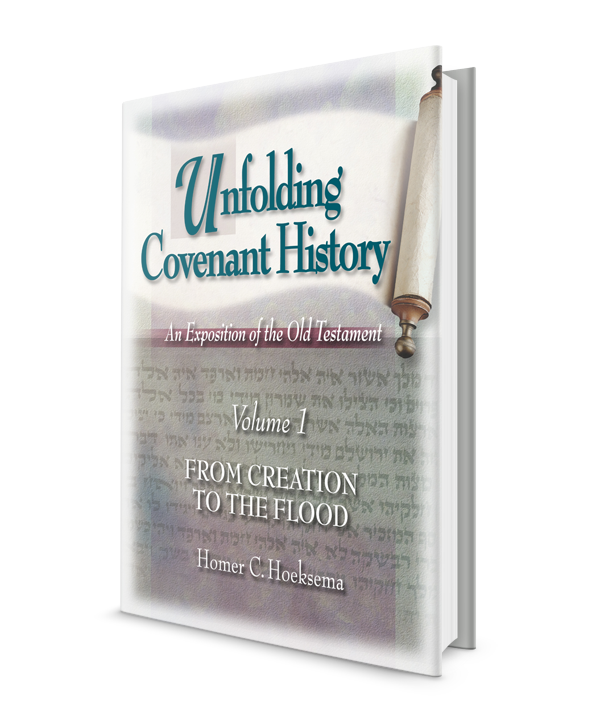The Idea of the Organic in Scripture (3)
Scientists are increasingly finding that the creation itself is an organism. Every part of the creation is related to every other part and what happens in one part affects every part. It is becoming more clear that radical changes made in one part of our world affect other parts in sometimes surprising ways. While such unity among all parts of creation is often most apparent in living creatures, the same unity can be found among non-living creatures as well. A forest fire can rejuvenate the entire burned area. Modifications in the weather ultimately affect life in every part of the world. Volcanic eruptions leave behind rock that, over the years, can and does become fertile soil for crops.
Within the larger organism of the creation, individual organisms, such as a tree, a grape vine, a bed of roses or an individual rose, a bird, etc., are composed of many different creatures. What happens to one affects all the other creatures—for good or ill.
To fertilize a rose is to give food to the roots and the entire plant benefits from it. But blight in one part of the rose bush will spread and ultimately destroy the entire plant.
In the vineyards of France, a rose bush is often planted at the end of a row of a particular kind of grapevine. If some deadly disease begins to show itself in the roses, some time later the vines will be struck with the same blight. This early warning system gives the vigneron time to save the vine by spraying some cure.
In the creation as a whole, the curse of God came down when Adam sinned. That curse came from God’s curse upon Adam because he was created head of the creation. The disease of sin entered into Adam and killed him spiritually; it also entered into the creation in which Adam lived and upon which he was dependent.
Do good to a healthy plant, and it will grow and flourish. Do serious harm to it, even one part of it, and it will die.
So it is in all of life. A nation is an organism. When the government declares war, you may be fiercely opposed to it, but your sons are going to have to go to war and perhaps be killed. Your house may be bombed and you will suffer the shortages that war brings. The whole nation is responsible for the war as an organism.
A family is an organism. A father who is a drunk harms himself and the whole family suffers. In a school classroom, 90% of the children may generally be obedient and attentive to the teacher, but one or two or three can be so disruptive that teaching is difficult or even impossible. The whole class suffers by not being able to learn as much as normal, for all in the class bear the consequences of the conduct of a few.
A congregation or a denomination of churches is an organism. If false doctrine or wicked living enters one congregation, and the biblical surgery of the discipline of the rebel or heretic in the congregation is not performed, the whole denomination is affected. In time, it will go astray and the entire denomination will be corrupted, for the false doctrine or godless living of one part (I Cor. 5:6; Gal. 5:9).
A man or woman or family may claim that he or she or it will remain faithful to the truth, when they leave a faithful church for another congregation less than pure in doctrine. But that family, even if some in the family wish to remain where the truth is preached, is guilty of tolerating false doctrine and will bear the consequences. All are responsible for the false doctrine and all will suffer—as Israel did when Achan stole forbidden things from Jericho (Josh. 7). The family goes the dreary and fatal way of apostasy in its generations, and its children are lost to the church.
I do not know how many times I have dealt with this problem in my own ministry. Parents who depart from a true church or refuse to leave an erring church lose their children and successive generations because of their sin. Even the law says that God visits the “iniquity of the fathers upon the children unto the third and fourth generation of them that hate” Him (Ex. 20:5). Parental failure to bring up their children in the ways of God’s covenant often means that they see their children and children’s children leave the church and walk in the world.
In Reformed theology, this is called “corporate responsibility.” How little is this accepted in today’s individualistic world where it is every man for himself. As I have said before, Arminianism, in all its different kinds, is individualistic, having no room for organic relationships and corporate responsibility.
The proponents of the well-meant or gracious offer of the gospel to the reprobate have no understanding of the organic either, as we saw in the last News.
God has provided a way to escape corporate responsibility for one in an organism who does not want the sin of the organism. He must make his disagreement known; he must refuse to follow his leaders when they lead into sin; he must leave the organism, if possible.
For example, a member of a family, who does not want to leave a true church with his close relatives, must confess his family’s guilt, as Daniel confessed the sin of Israel as his own (Dan. 9), and he must make his refusal known. In this way, he is pardoned. To give another instance, although the Christian is guilty, for example, of his nation’s sin of abortion, God will forgive him in Jesus, and out of faith he will raise his testimony against the terrible practice of murdering unborn children.
In the next issue, I hope, the Lord willing, to demonstrate from Scripture what these organic relationships mean in the work of salvation and how organic relationships are an integral part of God’s gathering His church. Prof. Hanko
|



